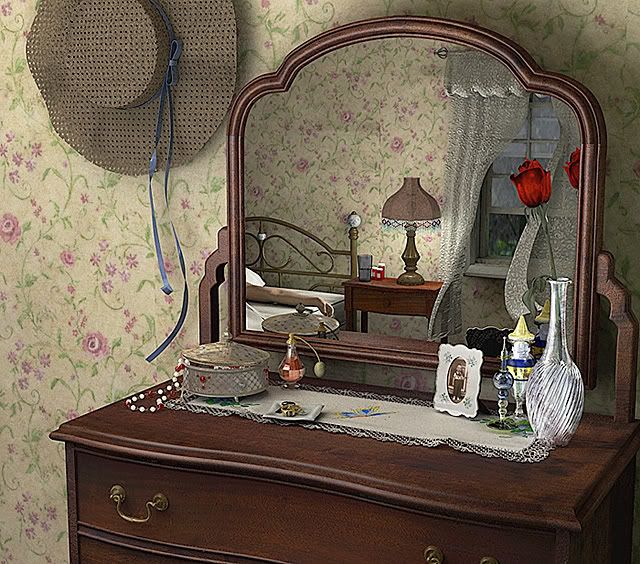
by Cynthia Sue Larson -
The provocative statement, "History is written by the victors," draws attention to natural human bias that reframes events according to current views and perspectives.
We can feel strengthened by the way we mentally review our past and as simple an idea as reflecting upon how much better things are now than they might have turned out can tremendously improve our ability to prosper through a heightened sense of confidence and commitment, as one study reports this month how looking back is key to moving forward.
A book I read this month, The Imposter, is written from precisely this kind of counterfactual reflection, telling the story of how a young man who ran away from home as a youth mastered some important life lessons that helped him overcame drug addictions and a variety of other negative life situations.
Sometimes we can look back at reality shifts we have experienced in our lives and see how things turned out better because of the shift.
While I was writing this newsletter, I took a break to make dinner while alone in the house. I had just put a macaroni and cheese casserole in the oven, when I noticed the front door was wide open, inviting sunshine and a fresh breeze but I had left it closed and locked.
I could hear voices of my daughter and her friend outside. I said, "Hello!" to them, and turned away from the front door to wash my hands. When I turned back around, I saw the front door was closed and locked... so I opened it and looked outside, but saw no sign of anyone.
I wondered to myself, "Where did they go?" as my telephone rang and I received a call from a friend wondering if I had time to talk. I replied "Yes," marveling quietly that I had just finished making dinner, and was still alone in the house.
My friend and I talked for about twenty minutes, until my daughter arrived, which turned out to be just long enough for me to hear all about the wonderful book on angels my friend has just written.
I asked my daughter and her friend if they had arrived home about twenty minutes earlier and opened the front door, and they said they had not been anywhere near the house at that time.
The thought occurred to me that I had experienced a reality shift in which I caught a glimpse of another possible reality that showed itself to me like a truncated branch on a tree of possibilities.
I had heard my daughter arrive home twenty minutes earlier... but then it was clear she had not arrived yet and I had a chance to talk with my friend on the phone before my daughter actually appeared.
Observation of reality shifts is necessarily an exercise in noting changes in the past.
If we didn't remember things being very different, we would not notice reality shifts at all. We would not be surprised, for example, if suddenly our keys were in a place they had not been before, because we wouldn't remember them being in any other place.
There is a possibility in some reality shift experiences that our ability to reframe our memory of what or where something was can greatly influence physical reality. The important question thus becomes: Do we literally change our past, simply by changing our memories?
When I encounter this kind of reality shift, I find myself wondering, What if all possibilities exist together simultaneously in many parallel worlds, all being tried at once by our consciousness which selects the one path which is agreed to have the most value?
I sense at such times that there seems to be an organizing force afoot!
Psychiatrist Sigmund Freud noted how suggestible people can be to envisioning entirely different pasts in psychotherapy sessions, and now, many decades later, psychologists observe that on average, about 25% of a randomly selected group of adults will readily change their view of the past without consciously being aware they are doing so after having been provided with prompts suggesting possible early childhood memories.
The field of advertising benefits from fond imagined memories when it attempts to remind us of happy moments in our past that we previously had never remembered, and such ads can occasionally be seen in TV and print ads.
There is a striking similarity between imagining something and remembering something, since similar parts of our brains operate in both cases.
Studies have shown that people who practice something only using mental visualization and imagination can improve as much as those who physically practice, as the connection between our imaginations and our physical bodies is very strong.
Asking yourself what part of your past could benefit from being reviewed more positively with a view to recognizing ways you grew into being a better person can greatly enhance your prosperity and well-being.
There is healing possible to you now, in the form of simply asking this question.
We can feel strengthened by the way we mentally review our past and as simple an idea as reflecting upon how much better things are now than they might have turned out can tremendously improve our ability to prosper through a heightened sense of confidence and commitment, as one study reports this month how looking back is key to moving forward.
"Nothing changes more consistently than the past; ... the past that influences our lives is not what actually happened but what we believe happened."--Gerald W. Johnson
A book I read this month, The Imposter, is written from precisely this kind of counterfactual reflection, telling the story of how a young man who ran away from home as a youth mastered some important life lessons that helped him overcame drug addictions and a variety of other negative life situations.
Sometimes we can look back at reality shifts we have experienced in our lives and see how things turned out better because of the shift.
While I was writing this newsletter, I took a break to make dinner while alone in the house. I had just put a macaroni and cheese casserole in the oven, when I noticed the front door was wide open, inviting sunshine and a fresh breeze but I had left it closed and locked.
I could hear voices of my daughter and her friend outside. I said, "Hello!" to them, and turned away from the front door to wash my hands. When I turned back around, I saw the front door was closed and locked... so I opened it and looked outside, but saw no sign of anyone.
I wondered to myself, "Where did they go?" as my telephone rang and I received a call from a friend wondering if I had time to talk. I replied "Yes," marveling quietly that I had just finished making dinner, and was still alone in the house.
My friend and I talked for about twenty minutes, until my daughter arrived, which turned out to be just long enough for me to hear all about the wonderful book on angels my friend has just written.
I asked my daughter and her friend if they had arrived home about twenty minutes earlier and opened the front door, and they said they had not been anywhere near the house at that time.
The thought occurred to me that I had experienced a reality shift in which I caught a glimpse of another possible reality that showed itself to me like a truncated branch on a tree of possibilities.
I had heard my daughter arrive home twenty minutes earlier... but then it was clear she had not arrived yet and I had a chance to talk with my friend on the phone before my daughter actually appeared.
Observation of reality shifts is necessarily an exercise in noting changes in the past.
If we didn't remember things being very different, we would not notice reality shifts at all. We would not be surprised, for example, if suddenly our keys were in a place they had not been before, because we wouldn't remember them being in any other place.
There is a possibility in some reality shift experiences that our ability to reframe our memory of what or where something was can greatly influence physical reality. The important question thus becomes: Do we literally change our past, simply by changing our memories?
When I encounter this kind of reality shift, I find myself wondering, What if all possibilities exist together simultaneously in many parallel worlds, all being tried at once by our consciousness which selects the one path which is agreed to have the most value?
I sense at such times that there seems to be an organizing force afoot!
Psychiatrist Sigmund Freud noted how suggestible people can be to envisioning entirely different pasts in psychotherapy sessions, and now, many decades later, psychologists observe that on average, about 25% of a randomly selected group of adults will readily change their view of the past without consciously being aware they are doing so after having been provided with prompts suggesting possible early childhood memories.
The field of advertising benefits from fond imagined memories when it attempts to remind us of happy moments in our past that we previously had never remembered, and such ads can occasionally be seen in TV and print ads.
There is a striking similarity between imagining something and remembering something, since similar parts of our brains operate in both cases.
Studies have shown that people who practice something only using mental visualization and imagination can improve as much as those who physically practice, as the connection between our imaginations and our physical bodies is very strong.
Asking yourself what part of your past could benefit from being reviewed more positively with a view to recognizing ways you grew into being a better person can greatly enhance your prosperity and well-being.
There is healing possible to you now, in the form of simply asking this question.


Absolutely adorable blog. Great to see this level of imagination. Thanks for joining mine. Looking forward to reading your posts. Cheers.
ReplyDeletehttp://ranjandhar.blogspot.com/